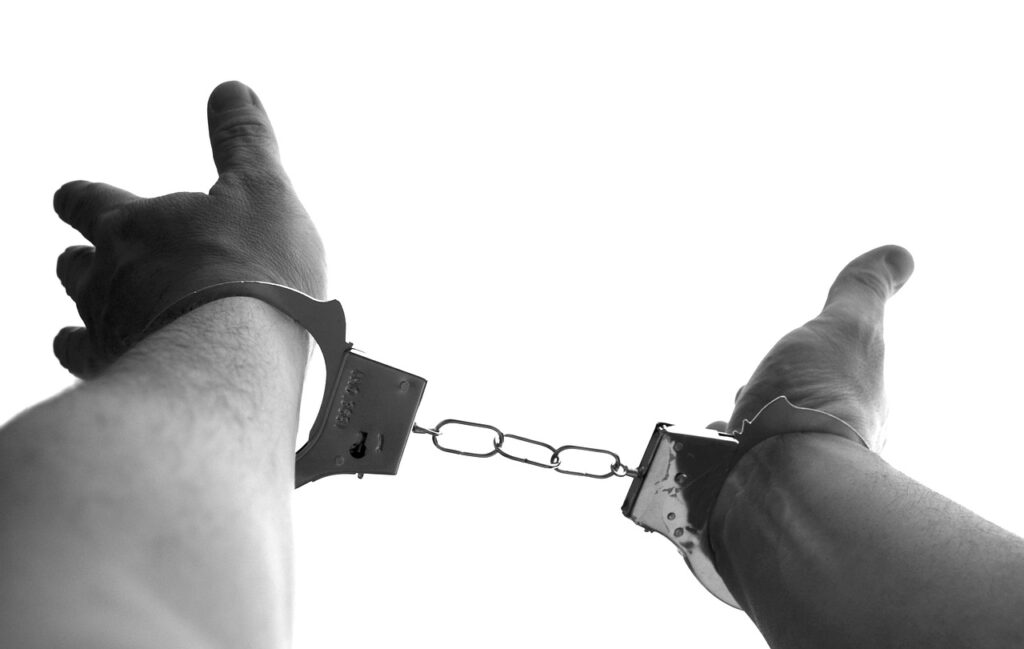
(Rightallegiance.com) – Former President Donald Trump is set to sign the Laken Riley Act on Wednesday, marking a significant step in his administration’s aggressive approach to immigration enforcement. The legislation, which is poised to be the first bill he signs in his second term, aims to tighten immigration laws by mandating the detention of individuals who lack legal status and are accused of certain crimes—potentially leading to their deportation before conviction.
Legislation and Its Implications
The Laken Riley Act, named after a nursing student whose tragic death ignited debate over immigration policies, passed through Congress with bipartisan support. The bill mandates that immigrants without legal status who are charged with crimes—including burglary, theft, larceny, shoplifting, or assaulting a law enforcement officer—be taken into federal custody. While it stops short of requiring a conviction, it dramatically expands the scope of mandatory detention for non-citizens accused of these offenses.
Trump, who made immigration a focal point of his re-election campaign, underscored the bill’s importance, stating, “This is a tribute to Laken, a beautiful young woman whose life was taken by an illegal alien. We passed a very powerful bill.”
The Tragic Case Behind the Bill
The legislation draws its name from Laken Riley, a nursing student who was killed in February 2024 outside Atlanta. The accused, Jose Ibarra, had entered the U.S. illegally and was first detained in September 2022 for unlawful entry. He was later arrested on misdemeanor shoplifting charges but was allowed to remain in the country while awaiting immigration proceedings. Following Riley’s murder, Ibarra was found guilty in late 2024 and sentenced to life without parole. Her case became a rallying cry for stricter immigration policies, with Trump frequently invoking her name on the campaign trail.
White House Press Secretary Karoline Leavitt defended the administration’s approach, emphasizing that the bill aligns with existing laws. “If an individual is here illegally—whether they crossed our border unlawfully, overstayed a visa, or returned after deportation—they will be subject to removal,” she said on ABC’s Good Morning America.
Support and Opposition
While the bill garnered some Democratic support, several lawmakers have voiced strong opposition, arguing that it undermines fundamental legal protections. Senator Tammy Baldwin of Wisconsin criticized the legislation, calling it “the largest expansion of mandatory detention seen in decades” and warning that it could lead to unjust consequences.
“Not only is this incredibly cruel and inhumane, but it is also contrary to our legal system’s bedrock principle that all individuals are innocent until proven guilty,” Baldwin said in a statement. She added that the bill could divert federal resources away from pursuing violent offenders and suspected terrorists in favor of detaining individuals accused of minor offenses.
The law also introduces provisions allowing state attorneys general to sue the federal government if they can demonstrate that a failure to enforce immigration laws is harming their states. Additionally, states will have the right to take legal action against the Department of Homeland Security (DHS) for any perceived damages resulting from illegal immigration.
Financial and Operational Challenges
Despite Trump’s commitment to stricter immigration controls, enforcing the Laken Riley Act could come with significant financial and logistical hurdles. According to an internal document obtained by ABC News, Immigration and Customs Enforcement (ICE) estimates that the bill’s implementation could cost up to $27 billion in its first year—far exceeding the $3.2 billion initially projected.
“Full implementation would be impossible for ICE to execute within existing resources,” the document warned. To comply with the law, ICE would need to expand detention capacity to at least 151,500 beds, a considerable increase from current levels. This estimate does not account for additional immigration measures the Trump administration has announced.
Expanding Immigration Crackdown
The signing of the Laken Riley Act comes as part of a broader immigration crackdown initiated by Trump in his second term. In his first week back in office, he signed ten executive orders aimed at curbing illegal immigration. Among them were directives tightening asylum policies, enhancing border security, and increasing deportations of individuals without legal status.
Newly confirmed Homeland Security Secretary Kristi Noem has also taken a proactive stance, recently participating in an immigration enforcement operation in New York City. That operation led to the apprehension of multiple undocumented individuals.
“One of my top priorities is achieving President Trump’s mandate from the American people to secure our southern border and fix our broken immigration system,” Noem said following her confirmation. “The Trump administration will once again empower our brave men and women in law enforcement to do their jobs and remove criminal aliens and illegal gangs from our country.”
Looking Ahead
As Trump prepares to sign the Laken Riley Act, the nation remains sharply divided over the legislation’s implications. Supporters argue it is a necessary step to protect American citizens from crimes committed by undocumented individuals, while critics warn of its potential for overreach and harm to due process. With legal challenges likely and concerns about enforcement costs looming, the true impact of the bill remains to be seen.
What is clear, however, is that immigration policy will remain a defining issue in Trump’s presidency, as his administration pushes forward with its agenda to reshape the country’s approach to border security and enforcement.